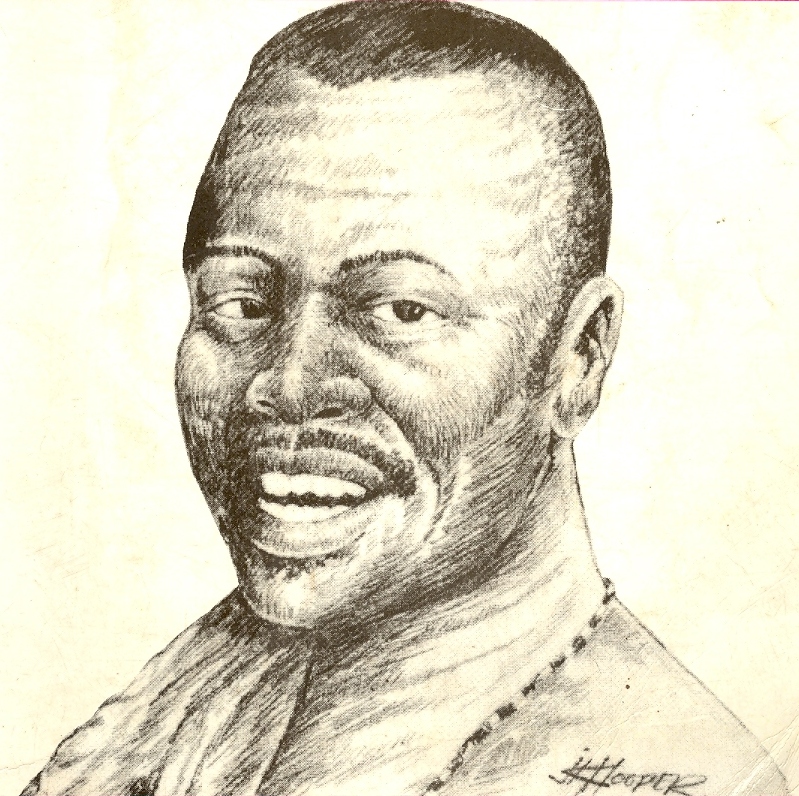The Ghana Journalist Association has decided to name its top journalism prize after a great man – Paul Archibald Vianey Ansah. He is one of the four men who have shaped my philosophy of what journalism is all about. Besides PAV Ansah, there is Kwaku Sakyi-Addo, Kwesi Yankah (pro-vice chancellor of the University of Ghana) and the socialist-minded firebrand, Kwesi Pratt.
I wrote a piece a while ago and mentioned how Kwaku Sakyi-Addo urged my class to “go out there and shake the basket.” Those who criticise my work, often like to refer to that article, mention Kwaku and admonish that I should learn to do things as he would.
I just want to make it clear today that in journalism there are four mentors I look up to. Long before Kwaku came into my life, there was PAV Ansah and Kwesi Yankah. One day, hopefully, I will say a lot more about the influence each of these four wise men have had on me.
- Advertisement -
Today, I want to talk about PAV Ansah.
The first and only time I saw him, he was dead. That was in 1993 and I was a teenager in form one at St John’s School. As a boy, PAV Ansah had walked the beautiful lawns at St. John’s decades before I did and upon his death, the school authorities thought it wise that a contingent be sent to his funeral in Saltpond. They decided that the school choir should go there to sing ‘Viam Parantes’ as a mark of respect to the great man. I was a member of the choir and I sung soprano in the all-boy choir. And, trust me, I did it very well – almost like Celine Dion.
When we got to Saltpond, we were taken to his family house at Prabiw and later to church (I am not so sure) to see his body laid in state. I could tell that we were attending the funeral of a very important man. And was I fascinated to read his biography?
He was a very learned man (of course, he had the title of “professor” attached to his name) but one thing that really struck me was what everyone kept saying about his column in the ‘Ghanaian Chronicle’ and how in his articles he liked to make reference to his hometown and the streets he grew up on. The more I heard those tales, the more I yearned lay my hands on some of his articles to read. Before that day, I was really hooked on was Kwesi Yankah’s ‘Woes of a Kwatriot’.
After the funeral, I felt like I should get my hands on some of PAV Ansah’s writings by all means. Back in school, I kept wondering how I was going to get copies of the ‘Ghanaian Chronicle’. I asked the school librarian. She was no help. I asked a couple of teachers and they told me they didn’t even read the Chronicle. At the time, that newspaper was causing a lot of trouble for Jerry Rawlings and his government and, I guess, those who read it were considered undesirable opposition elements. So I gave up.
Then by some stroke of luck – about a year later – during a visit to an uncle’s house, I went into his storeroom and saw hundreds of past copies of the ‘Ghanaian Chronicle’. Through the dust of the storeroom, I searched diligently for PAV Ansah. I found him and I fell in love with him.
At the time, I hadn’t even thought of becoming a journalist. Hell, I had no plan of becoming a journalist. I was studying science in school, preparing for a future as a gynaecologist. (Please, don’t ask me why).
Discovering Prof. Ansah’s articles in that dusty storeroom put all the things I heard people say about him at his funeral into perspective. But, for me at that time, I read PAV Ansah just for fun. His audacity and no-nonsense writings made me laugh a lot. I was always happy to read his favourite opening lines:
“Dear friends and lovers, pray, lend me your eyes and ears. I am craving your indulgence and serving notice that today I am going to town.”
Somehow, I didn’t turn out to become the doctor I wanted to be. I became a journalist and I fell in love with PAV Ansah all over again! I have never sought to be the second PAV Ansah. I will never be him. But he has been a mega influence on me – much more than Kwaku Sakyi-Addo.
If you see me as an overly-opinionated journalist, blame it on PAV Ansah. If you think I am disrespectful, insulting and irreverent check out PAV Ansah – read the compilation of his writings in ‘Going to Town’.
He was a man with balls. He was an academic and a very respected one at that. But he had no qualms about raining insults on incompetent twerps. And he did all of that at a time when this country was being ruled by an egocentric despot. It was a time of great danger when no one dared to speak about the ruler from the wrong side of the mouth.
Yet he was afraid of no one and he would take no crap from anyone – not even from the president at the time, Jerry Rawlings for whom he had a lot of justifiable disdain.
Even in sickness and much against the advice of his doctors, you could tell that PAV Ansah was an angry man who wouldn’t just sit and watch the government behave in a nonsensical manner.
“I am not prepared to seek accommodation with people who compromise too cheaply,” he wrote. “Nor do I suffer fools too gladly.”
PAV Ansah’s words were very harsh.
He described Rawlings as an “impetous, boisterous young man who had nothing but indiscipline, vaulting ambition, personal psychological problems…” a man who had “assembled around him a few brilliant guys plus a bunch of obscurities, mediocrities, not to say, nonentities.”
PAV Ansah said the Rawlings government (under constitutional rule) was “a pompous, self-righteous and pigheaded administration.”
Chastising our chiefs, PAV Ansah wrote about “their fickleness and inconsistency, being the kind of shameless sycophants and cringing stooges most of them are.”
PAV Ansah also described former vice president, Kow Arkaah as “a ‘kotobonku’ (an effeminate and cowardly man)” and urged him to act as a “man with two solid balls” between his thighs.
When he concedes that he had “used some strong words” he defends himself by saying that “the nature of the topic calls for this” and goes on to state emphatically that “let nobody get it into his head that I have to apologise for the use of strong language sometimes bothering on invective.”
This was the guy who founded the School of Communication Studies. He was a deeply religious man who once met the pope. And he’s the man for whom the GJA has named it annual top prize for journalism excellence.
I’ve learnt a lot from him. You can say that I am deliberately trying to copy him. Sometimes, when I am confronted by the stupidities of people who should know better, I ask myself: ‘what would PAVA say? How would he say it?’
When people tell me to stop insulting people, learn to respect my elders and be objective, I just smile to myself and shake my head.
If only they knew the giant whose footsteps I am struggling to follow and the words he spoke which ring so loudly in my ear anytime I sit down behind a microphone or before my keyboards:
“This is not the time for niceties, sweet nothings or misguided politeness and civility. It is time we called things by their names and stopped being hypocritical. Let everybody keep quiet and acquiesce, but as for me, I shall have my say to get the nonsense off my chest.”
In other words: “If others won’t talk, as for me, I shall not deny myself that right,” PAV wrote. “I am not afraid of the butcher’s knife. So if you want to advise me to take it easy, save your breath. I may be too ‘sabe sabe’ or too known but please, for Christ’s sake, leave me in peace to pursue my own ways even if you find these crooked, wayward or misguided. That is my absolute and inalienable human right as a full-blooded citizen of a free country called Ghana.”
That is PAVA’s influence on me. With him, I am in very good company and if the whole world tells me to shut the hell up, I know he will urge me to get the “nonsense off my chest”. I look forward to the day when I’d die and meet PAV Ansah on the other side. I hope I would get the privilege of walking right up to him to say: “I tried to copy you, sir. I failed but, man, it was so much fun!” That would be the best day of my death.


